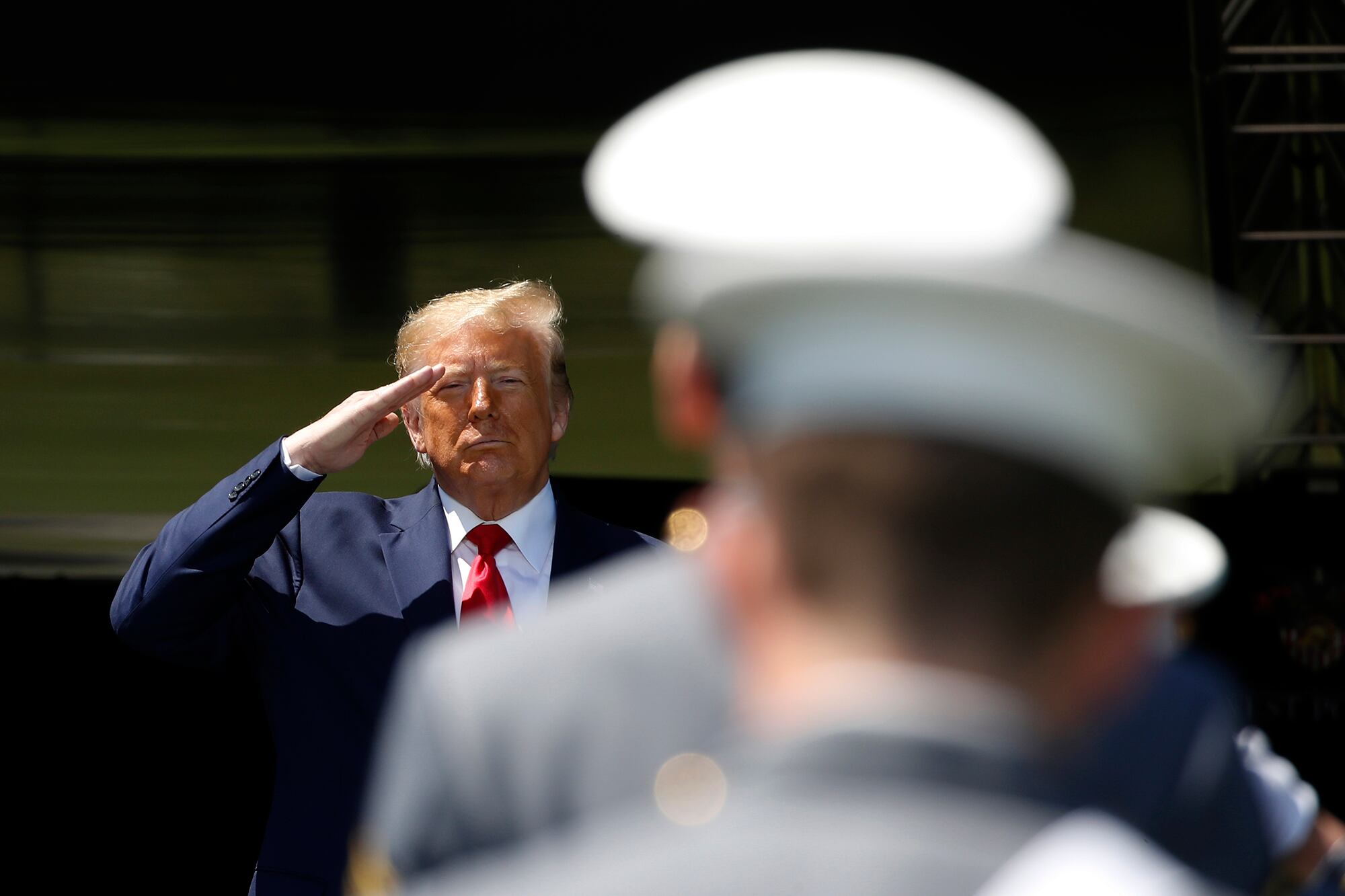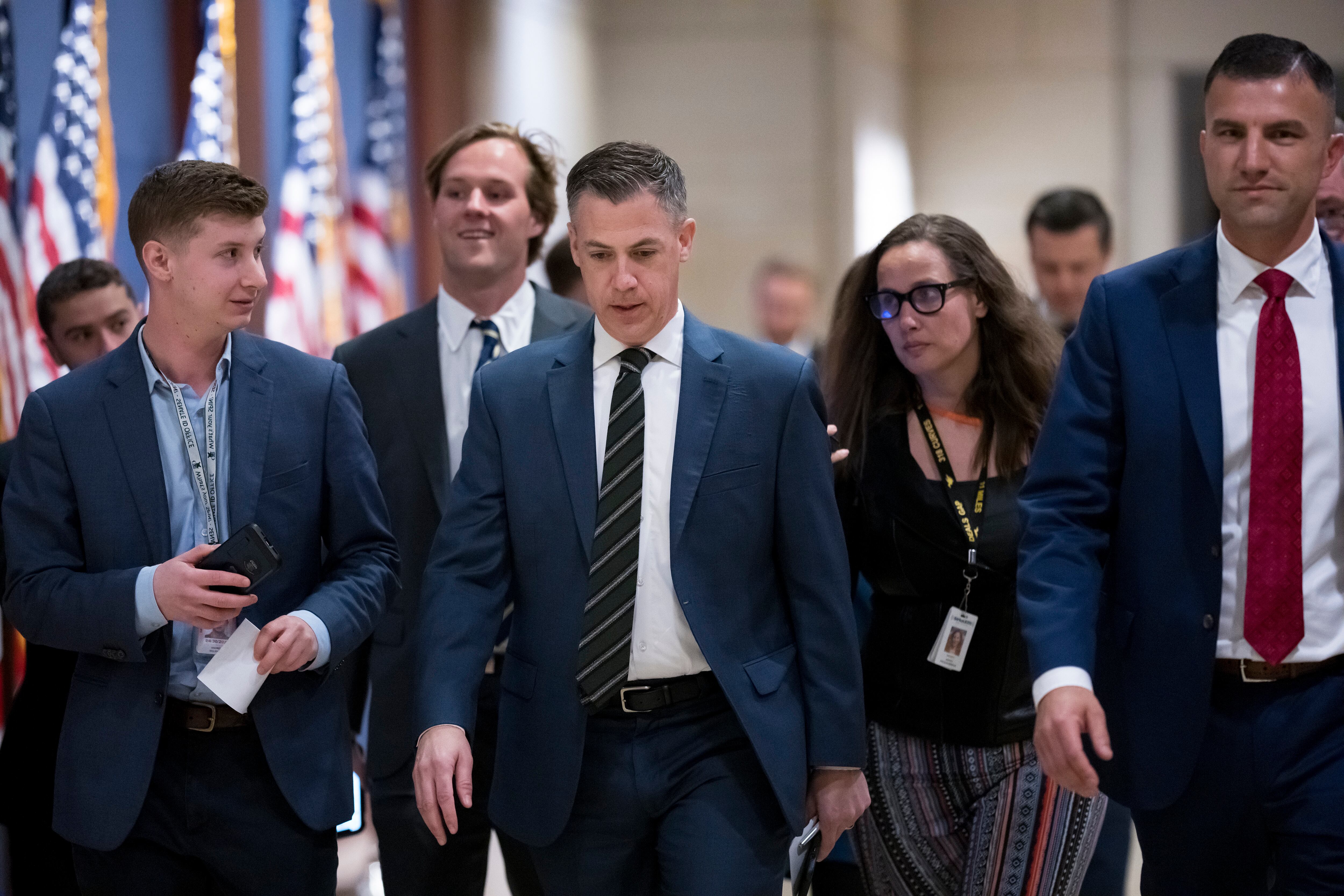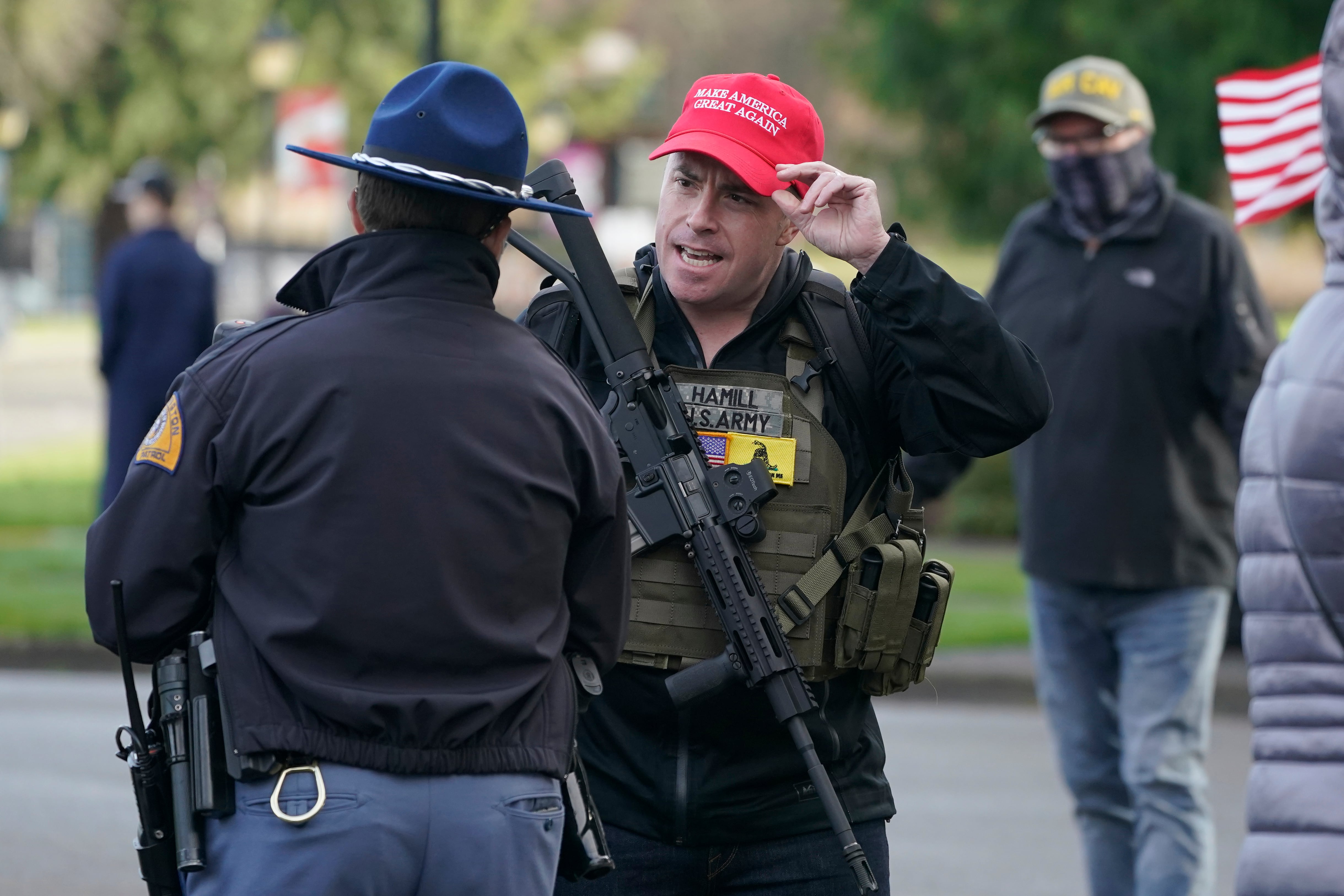The ranks of retired general and flag officers attacking President Donald Trump seem to swell every day. Defense intellectuals express their respect and support for their criticism, and the media breathlessly anticipate mass resignations of officers.
Criticism of sitting presidents by former and even serving members of the U.S. armed forces is nothing new. George Washington dealt with his share, and not everybody “liked Ike,” either. Since at least 1992, however, retired general and flag officers have too frequently become highly visible commentators on both sides of America’s political divide. It is worse today than ever, a fact that should deeply trouble every American citizen. By leveling ad hominem attacks rather than offering evidence of misdeeds, the president’s retired military critics arrogate to themselves the role of moral arbiter, a function without legal foundation under our Constitution. By taking this position, these retired generals and admirals do irreparable harm to the institution they claim to love and the republic they served for decades
The best-known of these critics include Gen. Barry McCaffrey, Gen. Michael Hayden, Adm. Bill McRaven, Gen. Vince Brooks, Adm. Mike Mullen, Gen. Jim Mattis, and Gen. Colin Powell. Their individual comments express a common theme: Donald Trump lacks the moral and ethical character, intellectual ability, experience, bearing, empathy, and sense of dignity to lead the nation effectively. Whether those allegations are true or not is moot; they do not constitute prima facie evidence of Mr. Trump deliberately undermining U.S. law, his oath of office, or the U.S. Constitution. By leveling ad hominem attacks rather than offering evidence of misdeeds, the president’s retired military critics arrogate to themselves the role of moral arbiter, a function without legal foundation under our constitution.
Moreover, as the failed impeachment effort showed, Mr. Trump’s behavior, though much less conventionally “presidential” compared to that of his immediate predecessors, cannot be proven to have endangered the security of the nation. If the critics possessed specific evidence, it would already be a matter of public record. Strategic-level leaders do not rise to such positions without learning the criticality of attention to detail, thorough understanding of a problem, and empirical evidence.
By long-tradition, retired flag officers exercise professional reticence about the incumbent president. Shortly after being fired by President Trump, Gen. Mattis observed that, “You don’t endanger the country by attacking the elected commander in chief,” because doing so undermines national security. The distinction between partisan political statements and policy recommendations “is not well defined,” according to Gen. Brooks, who went on to admit, “And I don’t think that I know” where the line lies.
Let no one delude themselves; in the contemporary political environment, policy recommendations are political recommendations. Absent a provable crime, Gen. Brooks’ declaration that “silence itself . . . can undermine the Constitution,” holds no validity at all. It would be much better for the country and the military if former flag officers heed Gen. Joe Dunford’s observation that, “For the U.S. military, being apolitical is a critical element of civilian control of the military—an absolute in a democracy. The alternative is a military dictatorship.”
Calls for a military coup by celebrities, journalists, academics, and perhaps even political candidates are the inevitable result of senior retired officers using their platforms to undermine the administration of a lawfully-elected president. Far from stewarding their profession, these officers hasten the death of an apolitical military, and creates the unhealthy perception that the U.S. military is now, like that of Turkey, the guarantor of a particular ideology. Such conduct abets efforts by foreign competitors and enemies to undermine American influence around the world.
More foreboding is the fact that today’s service members are reading these commentaries. The critics’ reputations give them enormous credibility within the military; their intemperate language may divide readers’ loyalties. This situation holds the potential to cripple our military institutions beyond recovery by corroding the culture of obedience—the bedrock of good order and discipline.
Good order and discipline rest on the unquestioned contract between professional soldiers that only legal orders will be issued, but that all legal orders will be obeyed. “Legal” does not include “moral” or “ethical” because those terms require subjective evaluation, not objective measure of adherence to a statute. I grant that many senior military officers believe Mr. Trump to be capricious, highly emotional, combative, and stubborn. Those traits are for the electorate to accept or reject, however, not the U.S. military.
Retired flag officers who attack the president’s character and claim his actions threaten to politicize the military are intellectually dishonest. By their own actions these officers suborn the transformation of the U.S. military from apolitical servant to political agent. If we—the military profession writ large—do not police ourselves and return to our historic role of quiet and professional public servants, we will bequeath to all our children a dull and rusty sword for them to defend their republic and its democratic institutions. The esteem with which the American people hold the military services will sink to levels not seen since the depths of the Vietnam War, and American and allied interests around the world will be challenged on a scale not seen since the height of the Cold War. Let us not reap that whirlwind.
Retired Col. Tom Hanson served over 28 years in the U.S. Army. He commanded infantry units at every level from fire team to battalion, and was a principal staff officer at the 2-, 3-, and 4-star level. He earned his Ph.D. in history from The Ohio State University. The views he expresses are his own, and do not represent official positions of the Department of Defense or the Department of the Army.
Editor’s note: This is an Op-Ed and as such, the opinions expressed are those of the author. If you would like to respond, or have an editorial of your own you would like to submit, please contact Military Times managing editor Howard Altman, haltman@militarytimes.com.
Note: This commentary has been corrected to more accurately reflect the list of former military leaders who have been critics of the president.





